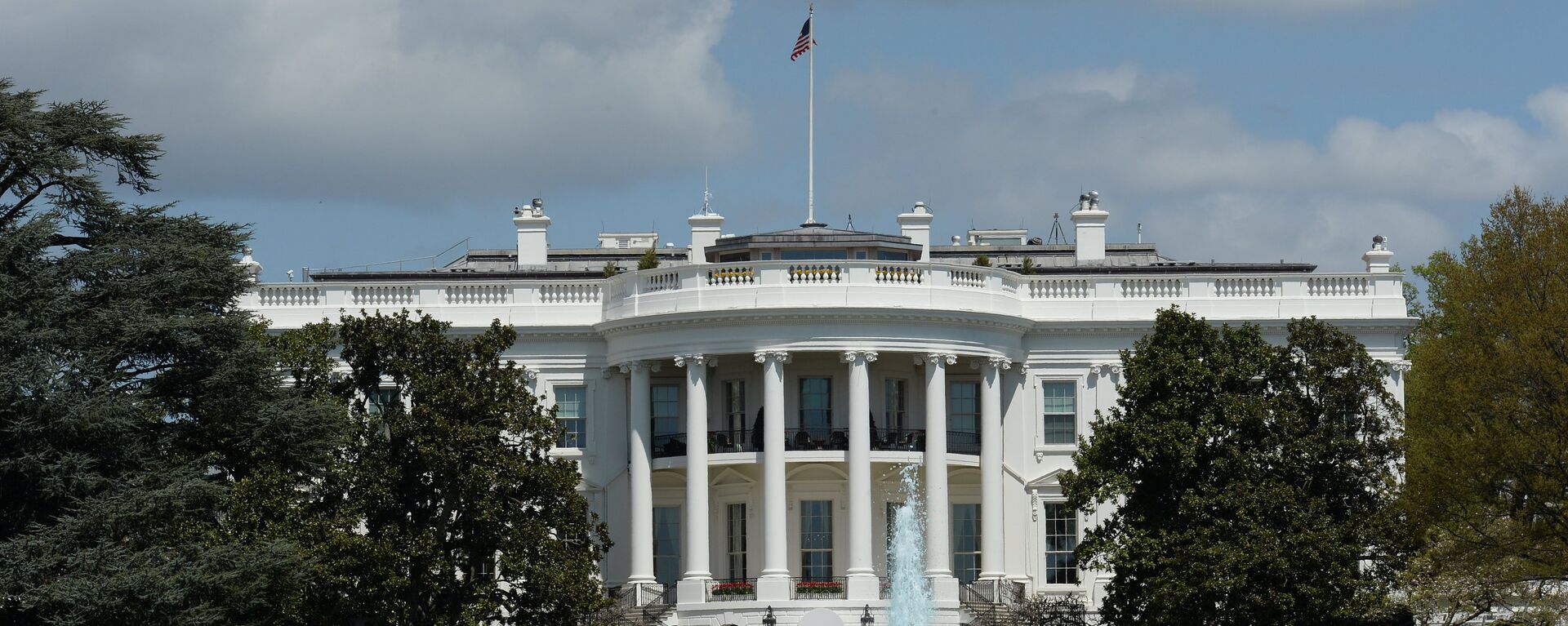https://sputnikglobe.com/20220620/israel-creating-middle-east-air-defence-alliance-under-us-leadership-defence-minister-says-1096484058.html
Israel Creating 'Middle East Air Defense Alliance' Under US' Wing, Defense Minister Says
Israel Creating 'Middle East Air Defense Alliance' Under US' Wing, Defense Minister Says
Sputnik International
The news comes ahead of President Joe Biden's planned visit to Israel in July as part of a tour of the Middle East which will also take him to Saudi Arabia for... 20.06.2022, Sputnik International
2022-06-20T11:03+0000
2022-06-20T11:03+0000
2023-01-15T17:26+0000
gulf states
america
alliance
partnership
defense cooperation agreement
israel
https://cdn1.img.sputnikglobe.com/img/07e5/0b/09/1090602241_92:0:1333:698_1920x0_80_0_0_082954c4fdb2602006bf9ba2c5b93442.png
Israel has been working on the construction of a US-supported "Middle East Air Defense Alliance" with Arab governments amid growing concerns over Iranian "aggression," Defense Minister Benny Gantz has revealed."This program is already operative and has already enabled the successful interception of Iranian attempts to attack Israel and other countries," Gantz added.The defense minister did not elaborate on these purported "Iranian attempts to attack," or mention any specific countries partnering with Israel. Iran has repeatedly emphasized that its military operations are defensive and aimed at fighting terrorism, and has avoided retaliating even to suspected Israeli killings of its nuclear scientists and military officers in recent years to avoid sparking a major regional war."I hope that we will take another step forward in this aspect during President Biden's important visit," Gantz said of the air defense arrangement.Biden is expected to touch down in Israel on July 13th before heading on to Saudi Arabia for a regional summit of leaders from the Arab Gulf nations, Egypt, Iraq, and Jordan.Only a handful of the Arab League's 22 members have normalized relations with Israel, including Egypt and Jordan (which did so in 1980 and 1994, respectively) and the United Arab Emirates, Bahrain, Sudan and Morocco, which did so in 2020 during a diplomatic push by the Trump administration.Saudi Arabia, the regional leader among the Arab Gulf states, has formally refused to normalize ties with the Jewish State until the Palestinian issue is resolved. However, media reported last month that Washington was secretly mediating negotiations between Riyadh and Tel Aviv to normalize relations, with the deal reportedly centered around a controversial proposed transfer of a pair of Egyptian islands to Saudi control.Israel set aside a special $1.5 billion budget for proposed attacks on Iran's peaceful nuclear energy program last year, and drilled alongside US Air Force tankers last month to simulate such strikes. The country's leaders have warned repeatedly that Tel Aviv would not be bound by any international agreements regarding Iran's nuclear program, including the Joint Comprehensive Plan of Action, which US and Iranian negotiators have been attempting to revive over the past year.Tel Aviv has also accused the Islamic Republic of providing weaponry including advanced rockets and drones to its regional allies, including Hezbollah in Lebanon, and Hamas and Islamic Jihad in Gaza. In January, Iranian deputy chief of army coordination affairs Habibollah Sayyari confirmed that Iran was interested in "sharing its advanced scientific and military technologies" with friendly countries, and indicated that "regional stability and security will be established based on mutual strength and interactions."Last year, Iranian armed forces spokesman Abdolfazl Shekarchi suggested that Israeli moves to try to forge defense with Gulf countries were being taken "out of desperation," and that certain "reactionary Arab regimes" cooperating with Tel Aviv would "fall in the end."
https://sputnikglobe.com/20220524/biden-admin-reportedly-mediating-breakthrough-deal-between-egypt-saudi-arabia-and-israel-1095744702.html
https://sputnikglobe.com/20220617/israel-coordinated-some-syria-strikes-with-pentagon-1096418133.html
gulf states
israel
Sputnik International
feedback@sputniknews.com
+74956456601
MIA „Rossiya Segodnya“
2022
News
en_EN
Sputnik International
feedback@sputniknews.com
+74956456601
MIA „Rossiya Segodnya“
Sputnik International
feedback@sputniknews.com
+74956456601
MIA „Rossiya Segodnya“
gulf states, america, alliance, partnership, defense cooperation agreement, israel
gulf states, america, alliance, partnership, defense cooperation agreement, israel
Israel Creating 'Middle East Air Defense Alliance' Under US' Wing, Defense Minister Says
11:03 GMT 20.06.2022 (Updated: 17:26 GMT 15.01.2023) The news comes ahead of President Joe Biden's planned visit to Israel in July as part of a tour of the Middle East which will also take him to Saudi Arabia for a regional summit of Arab nations.
Israel has been working on the construction of a US-supported "Middle East Air Defense Alliance" with Arab governments amid growing concerns over Iranian "aggression," Defense Minister Benny Gantz has revealed.
"Over the past year I have been leading an extensive program, together with my partners at the Pentagon and in the US administration, that will strengthen the cooperation between Israel and countries in the region," Gantz said, speaking to the Israeli parliament's Foreign Affairs and Defense Committee on Monday.
"This program is already operative and has already enabled the successful interception of Iranian attempts to attack Israel and other countries," Gantz added.
The defense minister did not elaborate on these purported "Iranian attempts to attack," or mention any specific countries partnering with Israel. Iran has repeatedly emphasized that its military operations are defensive and aimed at fighting terrorism, and has avoided retaliating even to suspected Israeli killings of its nuclear scientists and military officers in recent years to avoid sparking a major regional war.
"I hope that we will take another step forward in this aspect during President Biden's important visit," Gantz said of the air defense arrangement.
Biden is expected to touch down in Israel on July 13th before heading on to Saudi Arabia for a regional summit of leaders from the Arab Gulf nations, Egypt, Iraq, and Jordan.
Only a handful of the Arab League's 22 members have normalized relations with Israel, including Egypt and Jordan (which did so in 1980 and 1994, respectively) and the United Arab Emirates, Bahrain, Sudan and Morocco, which did so
in 2020 during a diplomatic push by the Trump administration.
Saudi Arabia, the regional leader among the Arab Gulf states, has formally refused to normalize ties with the Jewish State until the Palestinian issue is resolved. However, media reported last month that Washington was
secretly mediating negotiations between Riyadh and Tel Aviv to normalize relations, with the deal reportedly centered around a
controversial proposed transfer of a pair of Egyptian islands to Saudi control.
Israel set aside a special $1.5 billion budget for proposed attacks on Iran's peaceful nuclear energy program last year, and
drilled alongside US Air Force tankers last month to simulate such strikes. The country's leaders have warned repeatedly that Tel Aviv would not be bound by any international agreements regarding Iran's nuclear program, including the Joint Comprehensive Plan of Action, which US and Iranian negotiators have been attempting to revive over the past year.
Tel Aviv has also accused the Islamic Republic of providing weaponry including advanced rockets and drones to its regional allies, including Hezbollah in Lebanon, and Hamas and Islamic Jihad in Gaza. In January, Iranian deputy chief of army coordination affairs Habibollah Sayyari
confirmed that Iran was interested in "sharing its advanced scientific and military technologies" with friendly countries, and indicated that "regional stability and security will be established based on mutual strength and interactions."
Last year, Iranian armed forces spokesman Abdolfazl Shekarchi
suggested that Israeli moves to try to forge defense with Gulf countries were being taken "out of desperation," and that certain "reactionary Arab regimes" cooperating with Tel Aviv would "fall in the end."



